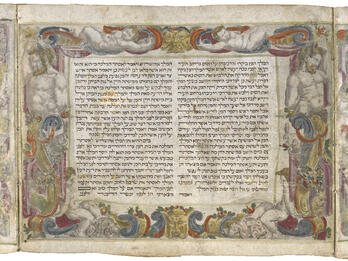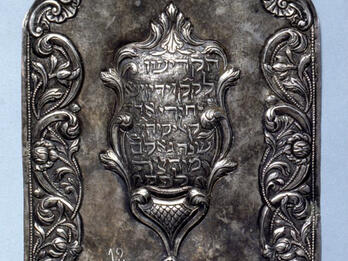Manifesto
Sarra Copia Sullam
1621
The soul of man, Signor Baldassare, is incorruptible, immortal, and divine, created and infused by God into our body when the fetus in the maternal womb was made fit to receive it. This truth is as certain, infallible, and indisputable for me as it is, I believe, for every Jew and Christian.
Thus the title of your book, in which you girded yourself…
Related Guide
Early Modern Trade and Mercantilism
International trade drove Jewish mobility during the age of mercantilism, as Jewish merchants formed wide commercial networks and partnerships and developed cosmopolitan attitudes that facilitated civic inclusion.
Related Guide
Spinoza and the Heterodox Challenge
Baruch Spinoza is notable for rejecting Judaism without converting to Christianity. After his excommunication from Amsterdam's Sephardic community, he developed the basis of modern biblical criticism.

Related Guide
Early Modern Italy: Where East and West Meet
Ashkenazim, Sephardim, and Marranos encountered each other in Italian cities, developing community structures that later influenced Jewish communal organization throughout the western world.
Creator Bio
Sarra Copia Sullam
Sarra Copia Sullam was a poet and writer born to an affluent Venetian family. She received an Italian and Jewish education. In 1618, she began a four-year correspondence with the Italian monk Ansaldo Cebà, sparked by her reading of his drama L’Ester. In the 1620s, Copia Sullam began hosting a literary salon in her house, which was frequented by prominent literary figures, many of whom she provided with financial support. In 1621, she was forced into a dispute with Baldassare Bonifacio, in which he accused her of denying the immortality of the soul. Her response appeared in the form of a manifesto that year. Copia Sullam wrote numerous sonnets, some of which survived and attest to her great erudition and literary skill.
You may also like



